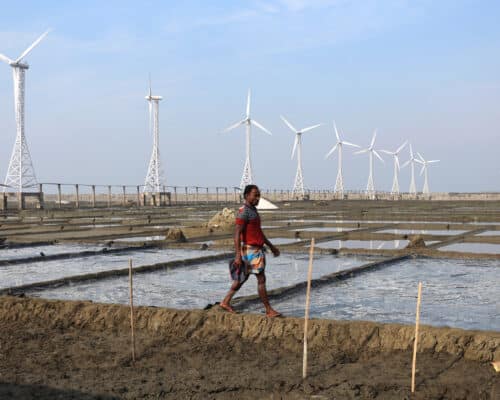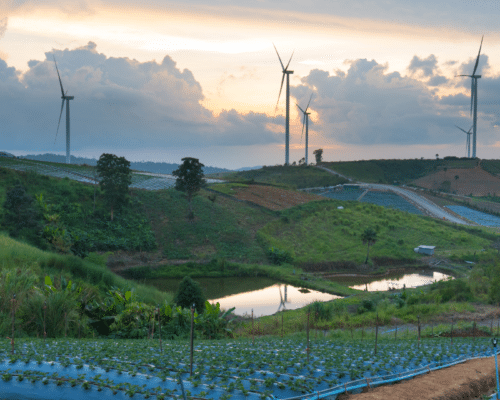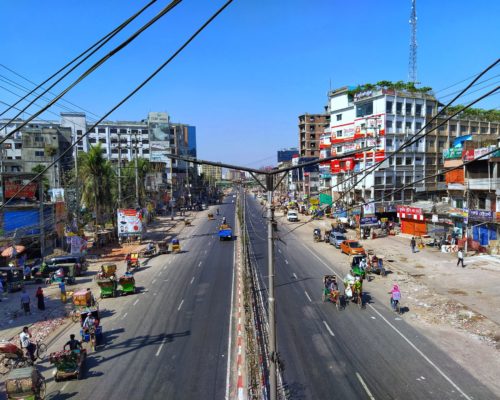Bangladesh’s Fossil Fuel Misadventure Offers Sobering Lessons on What Not To Do For a Proper Energy Transition
16 October 2024 – by Dr Khondaker Golam Moazzem Comments (0)
In the wake of its recent political change, Bangladesh is looking forward to correcting some of its key socio-economic malaises. The new government’s reform agenda includes energy and power—a sector intimately linked with a country’s growth journey.
When well planned with the right forecasts and fuel mix, the energy and power sector fuels industrial growth and meets the needs of citizens. Unfortunately, Bangladesh’s power and energy sector’s trajectory went far off course in recent years. The intensifying economic woes that added to the country’s fragile governance included ballooning energy bills, dwindling the foreign currency reserve and putting the country’s businesses under enormous stress. The perception of favouritism, overpriced unsolicited contracts and dysfunctional regulatory agencies pushed growing electricity and gas prices further up for citizens to the brink, stoking resentment and discontent.
The genesis of the crisis can be traced to a few factors:
- Faulty planning
- Exaggerated demand projection
- Excessive fossil fuel reliance in the mix
- Bad deals
- Lack of commitment to energy transition
The country’s energy strategy’s original sin was a huge overestimation of the power demand growth curve. With the passage of the Quick Enhancement of Electricity and Energy Supply (Special Provisions) Act 2010, the government went full throttle on multiplying power generation, resulting in an installed capacity that far outweighed maximum generation (over 40%), raising the number of power plants from 27 in 2009 to 144 as of 2024.
This capacity extravaganza was pursued by signing contracts with private sector investors for rental power plants using costlier fuels. However, given the lack of actual power demand growth compared to installed capacity, the government had to pay a staggering BDT 1,040 billion in capacity charges to them even when those plants sat idle. Thus, a miscalculation resulted in a massive and unjustified transfer of public money to rental plant owners. The main beneficiaries of this system include some big conglomerates.
Despite the visibly debilitating consequences of faulty forecasts, the necessary lessons were not learnt. Instead, the subsequent integrated energy and power master plan (IEPMP) added more reasons to worry as it estimated power demand at as high as 60,000 MW in 2041. It aimed to continue reliance on fossil fuels like LNG and coal. The plan also watered down the target of achieving 40% renewable energy by 2041, as set out in the Mujib Climate Prosperity Plan, and promoted carbon capture and storage of expensive hydrogen with no proven commercial feasibility, which was disapproved of by the experts.
Prioritising the quantity of generation capacity over social, environmental and economic concerns meant that regulators did not take stakeholders into confidence nor heed their concerns. When the construction of a 1,320MW coal-based power plant in Banshkhali faced mass protests, police firing on the crowd killed four people. Moreover, a certain portion of the excess installed capacity may be called “phantom capacity”, as some power plants failed to supply any power over the years. Still, their contracts with the power development board were not cancelled.
The fuel mix was configured so that it costs the country $2b a year of import bills for fossil fuels. Given the depletion of domestic gas reserves, the country became ever more reliant on imported LNG, which created severe pressure on Bangladesh’s foreign exchange reserve in a volatile global fuel market. Indeed, LNG’s high price forced the government to pay massive subsidies to power producers to supply gas at a manageable rate. Private companies built two costly, large fuel storage and regasification units to import LNG. When one of those FSRUs was damaged by the cyclone Remal, it took months to repair, hampering the entire country’s gas supply.
Besides general policy misalignment, a series of bad deals created unmanageable liabilities for the government. Importing energy from a power plant in India since 2023 at a rate much higher than the country’s average power generation cost has not only driven up the cost of electricity for consumers but entangled the country in debt. The Bangladesh Power Development Board (BPDB) recently disputed the plant’s huge financial demand, claiming the amount was inflated by 32%, with the actual figure being much lower. Another large-scale coal-fired power plant has been suffering the pinch of the coal crunch since coal imports were halted due to corruption allegations.
There is now a growing recognition of the unsustainable and costly energy landscape that has pushed Bangladesh into a quagmire.
Conversely, there has been very little progress in expanding renewable energy. Minuscule allocations for the renewable sector in the annual budget, taxes on solar equipment, a lack of proper surveys of available rooftops and land for solar energy, and a lack of comprehensive feasibility testing of wind energy have been taking the wind out of the country’s green ambitions. Bangladesh has significant opportunities for a fair energy transition, yet the energy master plan was remarkably underwhelming in its renewable ambitions.
Bangladesh could serve as a compelling case study on how reliance on expensive fossil fuels can lead to economic turmoil, underscoring the need to proactively transition to cleaner energy sources. The time has come to take an about turn on the energy strategy.
Dr Khondaker Golam Moazzem is a prominent industrial economist in Bangladesh. He is the Research Director at the Centre for Policy Dialogue (CPD), a leading think tank in Dhaka. With over 30 years of experience, he has published over 80 papers, reports, and book chapters on diverse topics, including workers’ rights, working conditions, social safety nets, income tax, power and energy, the environment, and Bangladesh’s readymade garment sector. Dr Moazzem has a strong reputation as a policymaker and collaborates extensively with various government committees and trade bodies. He is also a member of the Eminent Group established by the External Resource Division (ERD).
Centre for Policy Dialogue (CPD) seeks to be the leading institution for in-depth research and dialogue to promote inclusive policymaking in Bangladesh and strengthen regional and global economic integration. Established in 1993, CPD envisions creating an inclusive society based on equity, justice, fairness, and good governance.
Disclaimer: The views and opinions expressed in this article are those of the author and do not necessarily reflect the official policy or position of Energy Tracker Asia.








